Latest news
The Global Ecological Governance (Nansen) Conference commenced on October 16 in Fengtai, Beijing, and will run for three days. Experts from around the world have gathered to explore emerging trends, technologies, and policies in ecological governance.The focus areas include garden city development, biodiversity conservation, and the global horticulture industry.The conference aims to harness innovative productivity to foster the deep integration of innovation, industry, finance, and talent chains.
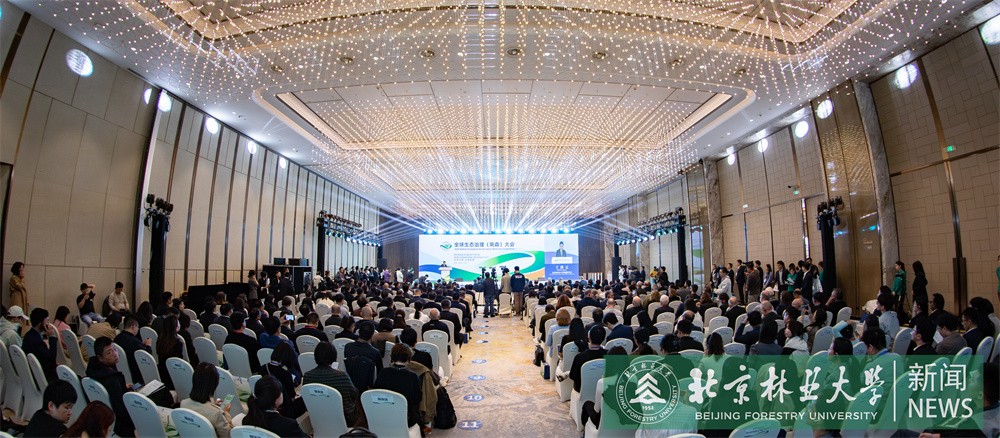
The Global Ecological Governance (Nansen) Conference is held under the guidance of the Beijing Municipal Education Commission, the Beijing Municipal Ecology and Environment Bureau, the Beijing Municipal Bureau of Landscaping, the Beijing Municipal Government Service and Data Management Bureau, and the Fengtai District People' s Government of Beijing Municipality. Co-hosted by Beijing Forestry University and the Beijing Forestry Society, the conference centers on the theme of "Ecological Governance and Sustainable Development".
The conference is structured in a "1+8+1" format, featuring one opening ceremony and eight thematic sessions: Thematic Session on Biodiversity Conservation, Thematic Session on Bird Migration,Garden City Thematic Conference, Thematic Conference on International Flower and Tree Development, Beijing forum on Forests and Thematic Session on Forest Healing, Thematic Session on Ecological Environment Governance, Thematic Session on "Data Empowerment, Smart Ecology" Development and the South Central Axis Planning and Construction Seminar. The conference also features an extended session titled Garden City Construction 2024 Heritage and Landscape Protection Conference.
The conference welcomes leading global experts, including Professor Riccardo Valentini from the University of Tuscia and the European Academy of Sciences, Academician Cui Peng from the Chinese Academy of Sciences, and Hans Lambers from the University of Western Australia. The event is also supported by international and domestic organizations such as the East Asian-Australasian Flyway Partnership (EAAFP), the International Centre for the Study of the Preservation and Restoration of Cultural Property (ICCROM), the Mangrove Conservation Foundation (MCF), the China Flower Association, the China Association of Environmental Protection Industry, the Capital Nature Experience Industry National Innovation Alliance, and the Forest Therapy and Health Promotion National Innovation Alliance. Through collaboration, participants aim to advance ecological governance and sustainable development, establishing a new benchmark for environmental management in major urban centers across the country.
In August, BFU and the Fengtai District Beijing Municipal Government entered into a strategic cooperation framework agreement, initiating a comprehensive partnership encompassing eight key areas. This collaboration aims to establish a model zone for garden city development in the capital and to broaden cooperation in ecological industries. The current conference signifies the cutting edge of their alliance, offering an international platform for ecological exchange and cooperation.
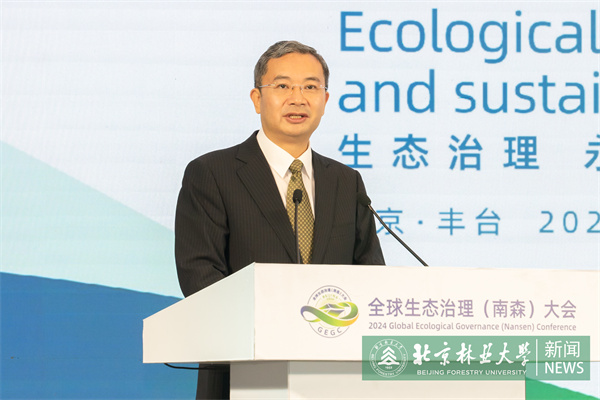
Xiong Sihao, Vice Minister of Education of China, highlighted the importance of the Global Ecological Governance (Nansen) Conference, which unites ecological experts and scholars from across the globe to engage in discussions on pressing ecological governance issues. He expressed his hope that by fostering talent development, technological innovation, and international collaboration, education can provide powerful collective force significantly for global ecological governance.
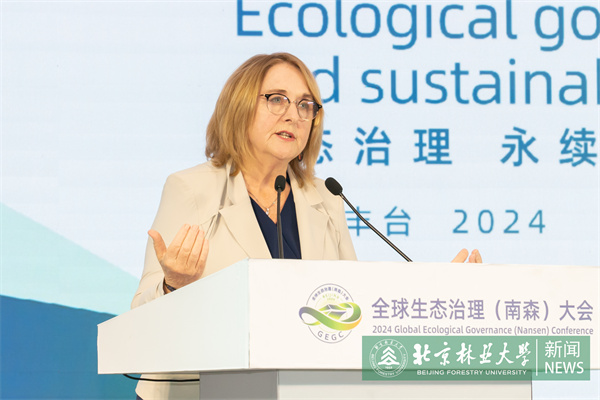
Jennifer George, the CEO of EAAFP, highlighted that the EAAFP is a regional partnership comprising 18 countries and 22 non-governmental organizations, with BFU contributing its expertise and resources to host the Science Unit as part of the Secretariat. A core element of its mission is to establish a network of over 1000 internationally significant sites, promoting ecological connectivity for migratory waterbirds.
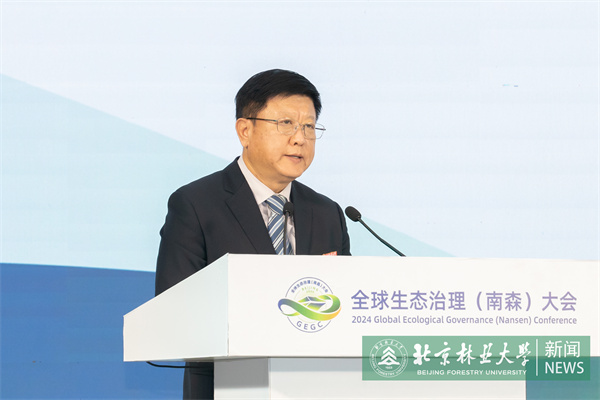
Wang Hongyuan, Chairman of the University Council at BFU, underscored the university's collaboration with Fengtai District. This partnership integrates industry, education, research, and innovation to harness their collective strengths. Together, they aim to establish a hub that attracts top talent, fosters green technology, cultivates ecological industries, and promotes international cooperation in ecological governance. This initiative is set to elevate Beijing's standing as a global leader in ecological civilization.
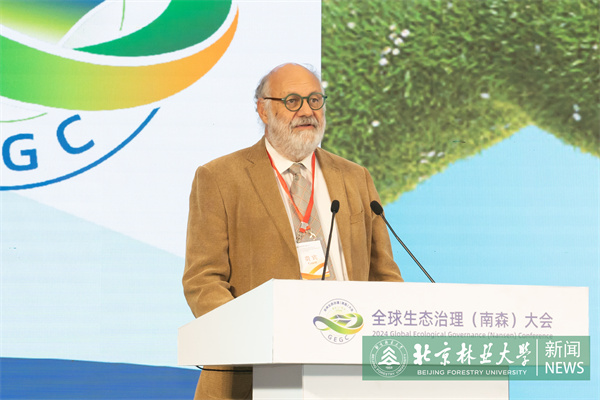
Riccardo Valentini presented a keynote speech on “Digital Forest: The Need of Digital Transformation in Forest and Ecosystem Research”. He analyzed key factors impacting ecological observation and shared insights into how his team’s innovations, like the wireless technology TreeTalker, are applied in ecosystem research and management.
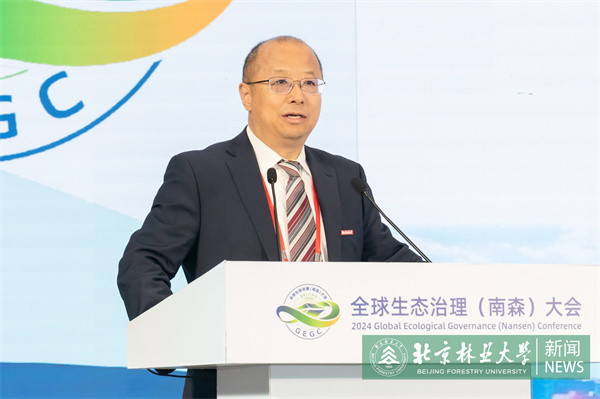
Li Zhaohu, President of BFU, highlighted in his keynote speech titled “The Role of Universities in Global Ecological Governance” that BFU has made active efforts in tackling climate change for ecosystem conservation and restoration to promote biodiversity and international collaboration. He stated that the university will continue to drive technological innovation, strengthen talent development, and advocate for ecological civilization, making ongoing contributions to global ecological governance.
During the opening ceremony, representatives from the government, university, and academic experts jointly launched the Global Ecological Governance Nansen Initiative. This initiative calls for the establishment of a permanent conference mechanism and an innovative platform for exchanges and sharing, advancing a global scientific action plan for migratory bird flyways. Through joint laboratories and innovation alliances, it aims to promote global collaboration in ecological science and education, creating a beautiful home for humanity and nature on Earth.
BFU has recently strengthened its partnership with organizations like the EAAFP by establishing the East Asian-Australasian Migratory Bird Research Center,actively promoting knowledge co-creation and sharing in ecology, environmental science, and biodiversity conservation across migratory bird flyways and is committed to training young leaders in global ecological governance and conservation.
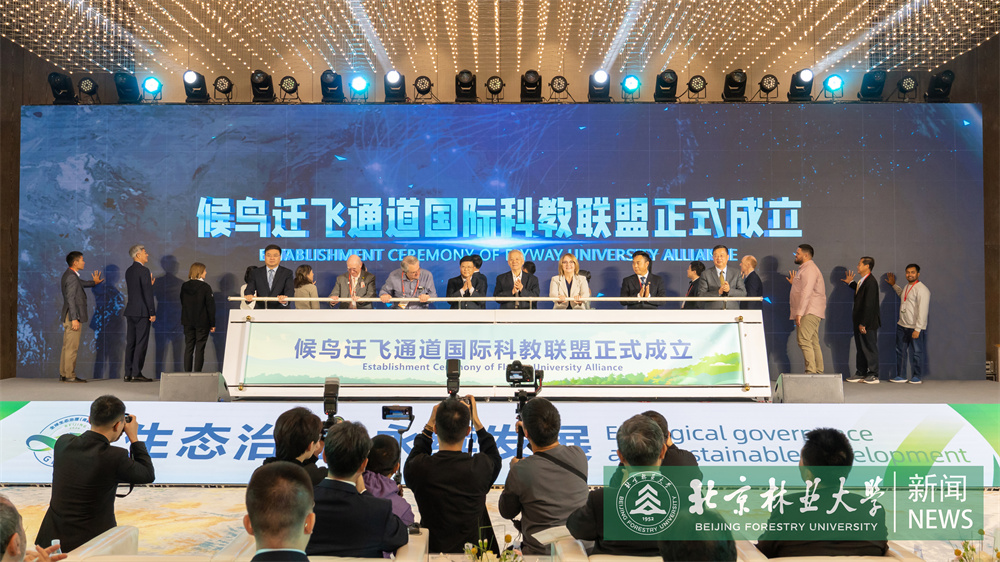
During the conference, the Flyway University Alliance was officially launched. This alliance is focused on bringing all the forces from countries and regions along the flyway togerther, especially from universities and research institutions. It aims to support young people and emerging experts in carrying out cross-regional research and collaborative actions within flyway areas, develop innovative scientific plans, enhance coordinated research and monitoring efforts, and actively build international green corridors for global biodiversity conservation.
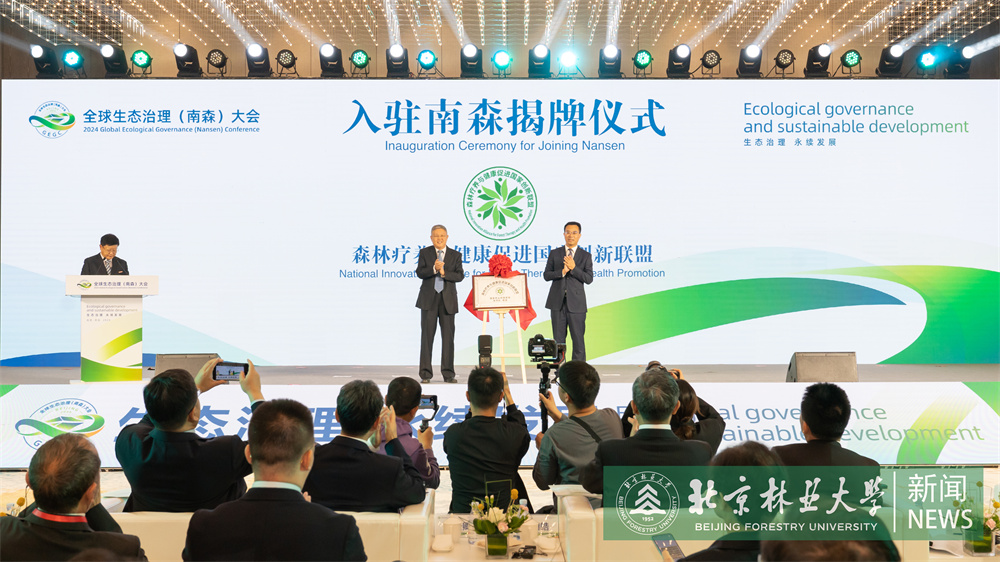
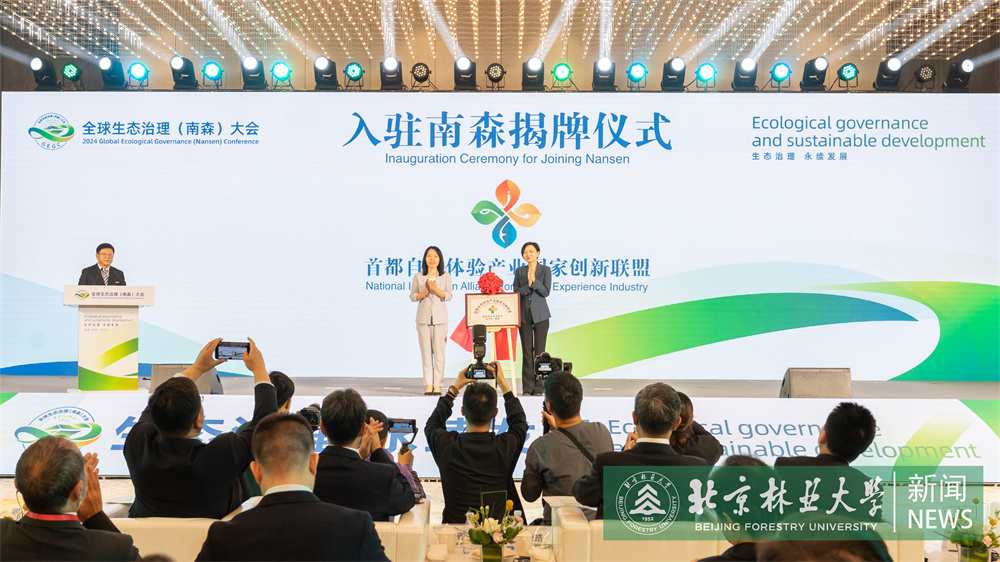
Additionally, during the conference, the secretariats of two national-level innovation alliances—National innovation Alliance for Forest Therapy and Health Promotion and the National Innovation Alliance for Nature Experience Industry—officially established their headquarters at Nanyuan Forest Wetland Park.
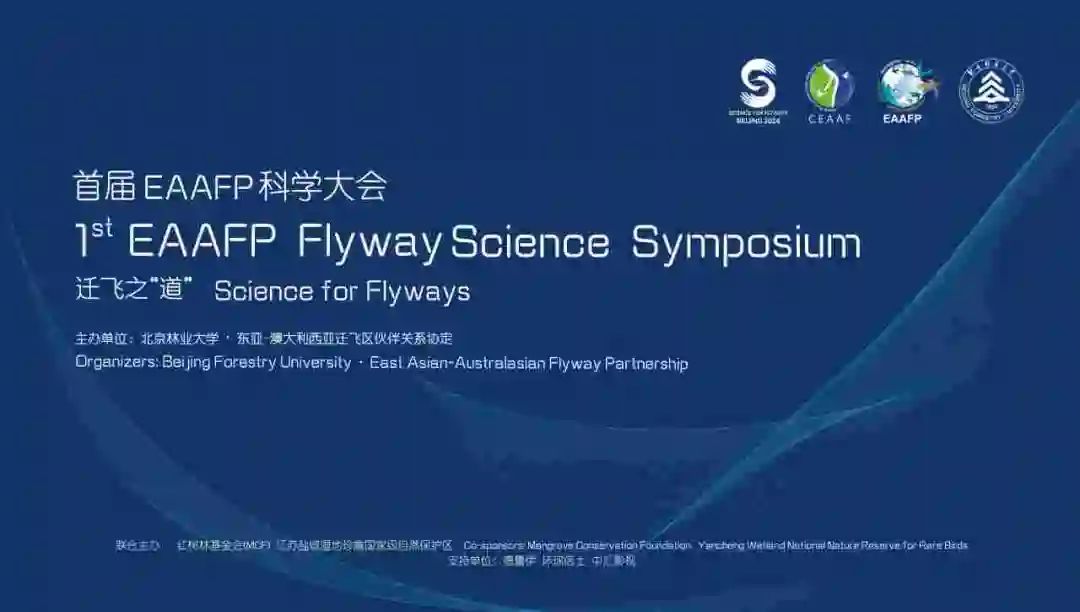
On October 17, the conference held the Thematic Session on Bird Migration, dedicated to advancing global biodiversity conservation, supporting the Kunming-Montreal Global Biodiversity Framework, and creating a platform for scientific exchange and collaboration on flyway. The session, focused on the EAAFP, will unveil the Global Scientific Action Plan for Migratory Bird Flyway Conservation.
Written by Yang Yinan
Photo by Chen Haoyuan, Jiang Yue, BFU Convergence Media
Translated and edited by Song He
Reviewed by Yu Yangyang










